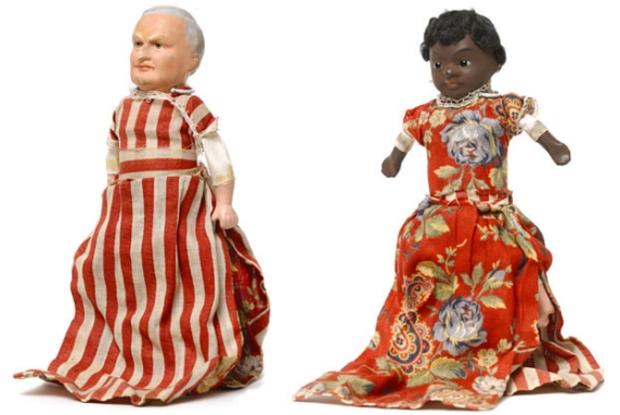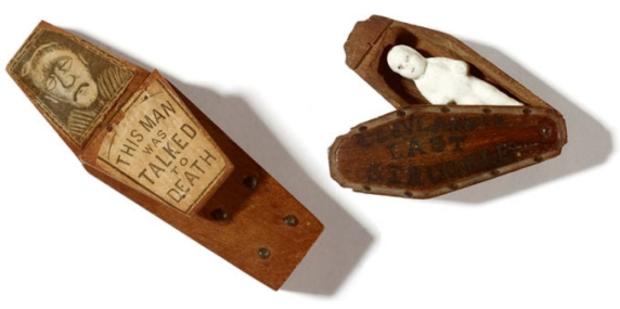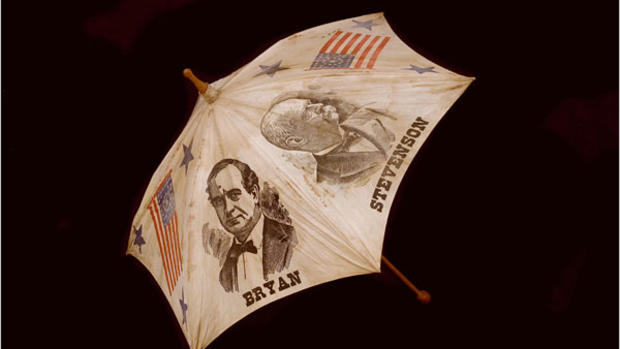A million pieces of presidential memorabilia locked away in NYC
What may be the world's largest collection of presidential campaign memorabilia - buttons, brochures, hats, posters, stickers -- over a million items in total -- isn't hanging on display. It's packed away, stacked box upon box, piled from floor to ceiling in a handful of storage units in Long Island City, in the New York City borough of Queens.
How it got there is much the same way many things end up in storage.
The first item in Jordan Wright's collection, started when he was 10 years old, was a button from Robert F. Kennedy's 1968 presidential campaign. Forty years later, through his hunting and gathering, Wright had amassed not only thousands more buttons but priceless pieces of political history. The collection's prize piece is a George Washington picture flag used at the first president's swearing-in. In 2008, Wright died at the age of 50, just two weeks before his items were scheduled to be displayed for the first time, in an exhibit at the Museum of the City of New York.
The exhibit went on, but not long afterward, the memorabilia was boxed up, and the stories behind the items were lost to history for the next few years.
"The problem with my dad amassing this collection and not sharing exactly what was in it is the knowledge was in his head," said Austin Wright, Jordan Wright's son, "he could tell you where each item was, and what it was about, and where he received it."
One of his favorite stories, according to his son, was about a doll, produced in 1896 by Democrats campaigning against Republican William McKinley. The doll depicts McKinley in a flag-patterned dress, but when it's flipped over and the dress pulled in the opposite direction, it becomes an entirely different doll, depicting an African-American girl in a flower-patterned dress. It was used, according to Mr. Wright, to remind voters of a rumor that McKinley had fathered an African-American child out of wedlock.
McKinley's opponent, William Jennings Bryan, was the subject of some negative campaigning as well. Bryan, a renowned orator, was known for his long-winded speeches. In response, Republicans produced miniature coffins that read "talked to death" across them. Mr. Wright has one of the palm-sized novelties in his collection.
The story of the McKinley doll, the miniature coffins and about a thousand other items, lives on in Jordan Wright's book, "Campaigning for President," published in 2008. It spans from a George Washington button to a George W. Bush punching bag and includes, in the pages in between, paper lanterns from the Lincoln era, a Teddy Roosevelt parasol, an Dwight Eisenhower cereal box, cans of "Gold Water," a Jimmy Carter wind-up peanut toy, a Ronald Reagan teapot and a Bill Clinton marionette.
What's still missing is the encyclopedic knowledge required to organize those less notorious items, the purview of Wright's late father. Austin Wright aims to get the million-plus items cataloged, indexed and eventually into both traveling exhibits and a permanent display space. To start that process he estimates he'll have to raise $1.5 million through a nonprofit he's set up called the Museum of Democracy. It's a hefty sum, but one he says he has to come up with for his father.
"He spent countless hours, three in the morning, four in the morning, curating it, discovering new objects that he wanted. I have to honor him, his passion and his legacy," Austin Wright said, "And not just him, I think that these objects deserve to be seen by the public."



